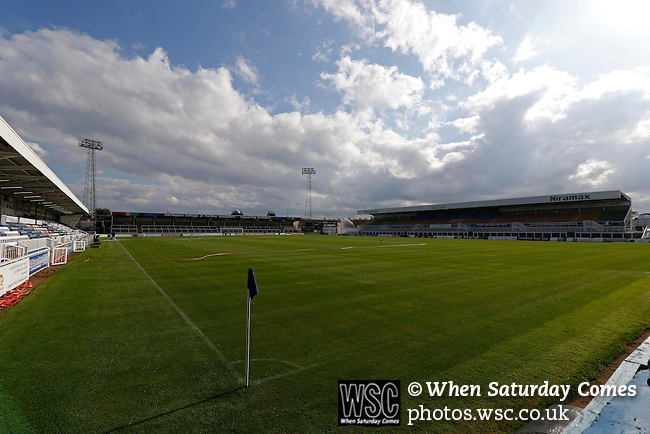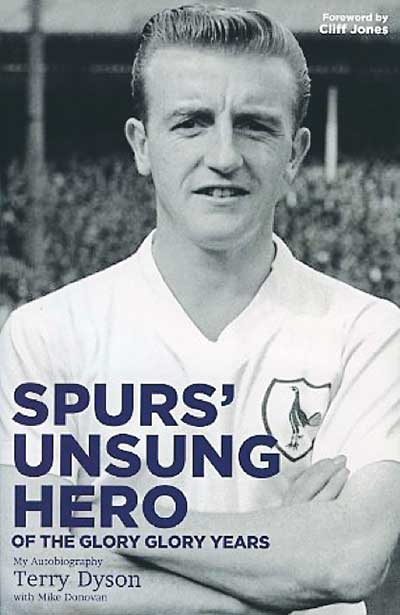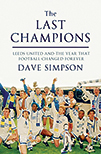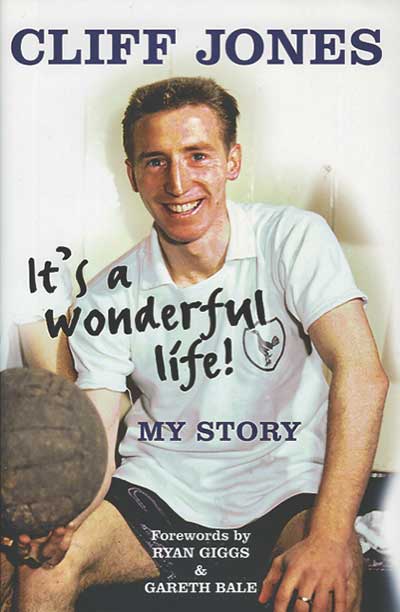
Search: ' Dave Jones'
Stories
With the two teams set to meet again in the FA Cup fourth round this weekend, we looks back at their previous match at Gander Green Lane
 My autobiography
My autobiography
by Terry Dyson with
Mike Donovan
Pitch Publishing, £18.99
Reviewed by Alan Fisher
From WSC 342 August 2015
“The game is about glory,” proclaim the hoardings on all sides of White Hart Lane. Before it was plundered by the marketing department, Terry Dyson was one of the creators of Tottenham Hotspur’s proud heritage. In 1961 Spurs became the first team since 1897 to win the Double, with 11 straight league wins at the start of the season. Two years later they were the first British team to win a European trophy, the Cup-Winners Cup. Dyson is one of the lesser-known stars of a team managed by Bill Nicholson that included Danny Blanchflower, the indomitable Dave Mackay, Cliff Jones, Bobby Smith and perhaps the best of them all, “the Ghost” John White (who was killed by lightning on a golf course in 1964).
Born in Scarborough where his father was a well-known but impoverished jockey, Dyson was spotted in 1954 playing for the army during his national service. Over the next decade he made 244 appearances for Spurs as a hard-working little left-winger, scoring 68 goals including two in his finest match, the 5-1 Cup-Winners Cup final victory.
Much of the book is understandably taken up with the Double season, rich with insider detail and anecdotes on a game-by-game basis that will fascinate Spurs fans, while the less committed reader can’t help but be swept along by Dyson’s enthusiasm and growing sense of destiny. However, the abiding impression is one of humility, a simple delight in playing good football with team-mates he liked, admired and respected. His description of soft-voiced conversation and calm satisfaction in the Wembley dressing room after the Cup win to seal the Double is typical and evocative, striking for its lack of brazen celebration even though they were perfectly entitled to let go. Nicholson was genuinely upset that the team had let themselves down because their performance was below their best.
Dyson played in a very different era, being paid £40 in weekly wages even after the season’s other momentous event, the abolition of the maximum wage. He lived locally in digs with the same family for ten years and drank after matches with the fans in the Bell and Hare pub next to the ground. He bemoans the separation between supporter and player that is the norm today. However the most telling sign of different times is that the editor felt the rules of Dyson’s favourite playground game, conkers, had to be explained in detail to an apparently bewildered readership.
Yet in many ways this was an entirely modern team. The cheerful Dyson recounts how he and his team-mates talked football incessantly, supporting each other on and off the pitch. Contrast Gary Neville’s recent criticism of the lack of on-field intelligence and problem-solving in the English game.
Later in his career Dyson played for Fulham and Colchester, then managed in non-League and coached in local schools. Spurs fans of all vintages will revel in this account of a man who was part of a team contemporaries called the finest of all time yet who remains humble. Now a sprightly 80 the stories he is able to tell allow Terry Dyson to step into the limelight.
 Leeds United and the year that football changed forever
Leeds United and the year that football changed forever
by Dave Simpson
Bantam Press, £16.99
Reviewed by Simon Creasey
From WSC 305 July 2012
Twenty years ago a ragtag bunch of journeymen footballers, raw youngsters, non-League players plucked from obscurity and a mercurial Frenchman achieved the seemingly impossible. Assembled for just £8 million, the 1991-92 Leeds United team created by Howard Wilkinson became the last side to win the old Division One title. The following season the Premier League was born.
What this team achieved in a short space of time was unprecedented. In just three and a half seasons, following almost a decade in the wilderness, Wilkinson transformed a relegation-threatened second-level side into League winners. The sheer size of the achievement has finally been given the recognition it deserves in The Last Champions.
Author Dave Simpson tracked down members of the title-winning side to find out what it was like in the inner sanctum of the club during this momentous period. Featuring interviews with former players including Lee Chapman, Tony Dorigo and a touching chat with Gary Speed shortly before his untimely death, Simpson pieces together what made this team such a cohesive, well oiled machine.
The book starts by revealing that Wilkinson pioneered many of the sports science techniques common in today’s game. From the dietary advice and special vitamin drinks he prescribed, through to the extreme, military-style fitness regime that earned him the “Sergeant” moniker, Wilkinson was acutely aware that physical conditioning could make up for a shortfall in technical ability.
It also charts Wilkinson’s sometimes suspect man-management skills and his ability to cut players loose without seeming to give any thought to their feelings. Among many others, Vinnie Jones and Chris Kamara were ruthlessly released when Wilkinson decided they had served their purpose by helping the club return to the top flight.
The interviewees provide plenty of eye-opening stories about former team-mates. While Simpson failed to make contact with the reclusive David Batty, who turned his back on the game after retiring, there are plenty of colourful anecdotes about the midfielder. Such as the time an inebriated Jones took his car for a spin – with some “birds” in tow – around Batty’s front lawn before breaking into the house to frighten his team-mate, only to find Batty wielding a Bowie knife that he hid in his bed.
Amid the usual revelations that are common to all contemporary football biographies, Simpson’s story captures the pathos of the many players who narrowly missed out on the Premier League cash cow. While some leading lights from the squad forged lucrative post-retirement careers, such as Eric Cantona, Jones and Kamara, many of the title winners are still holding down ordinary jobs to pay the bills. Former striker Carl Shutt works as a travel agent and towering centre-half John McClelland provides regular tours of Elland Road when not working as a postman. McClelland best sums up the sheer magnitude of the team’s achievement, which he likens to “climbing Everest”. To put it into context, imagine Southampton winning the Premier League title in 2013-14. That is what Wilkinson and his players achieved and it is what makes this story so special and worthy of Simpson’s insightful homage.
